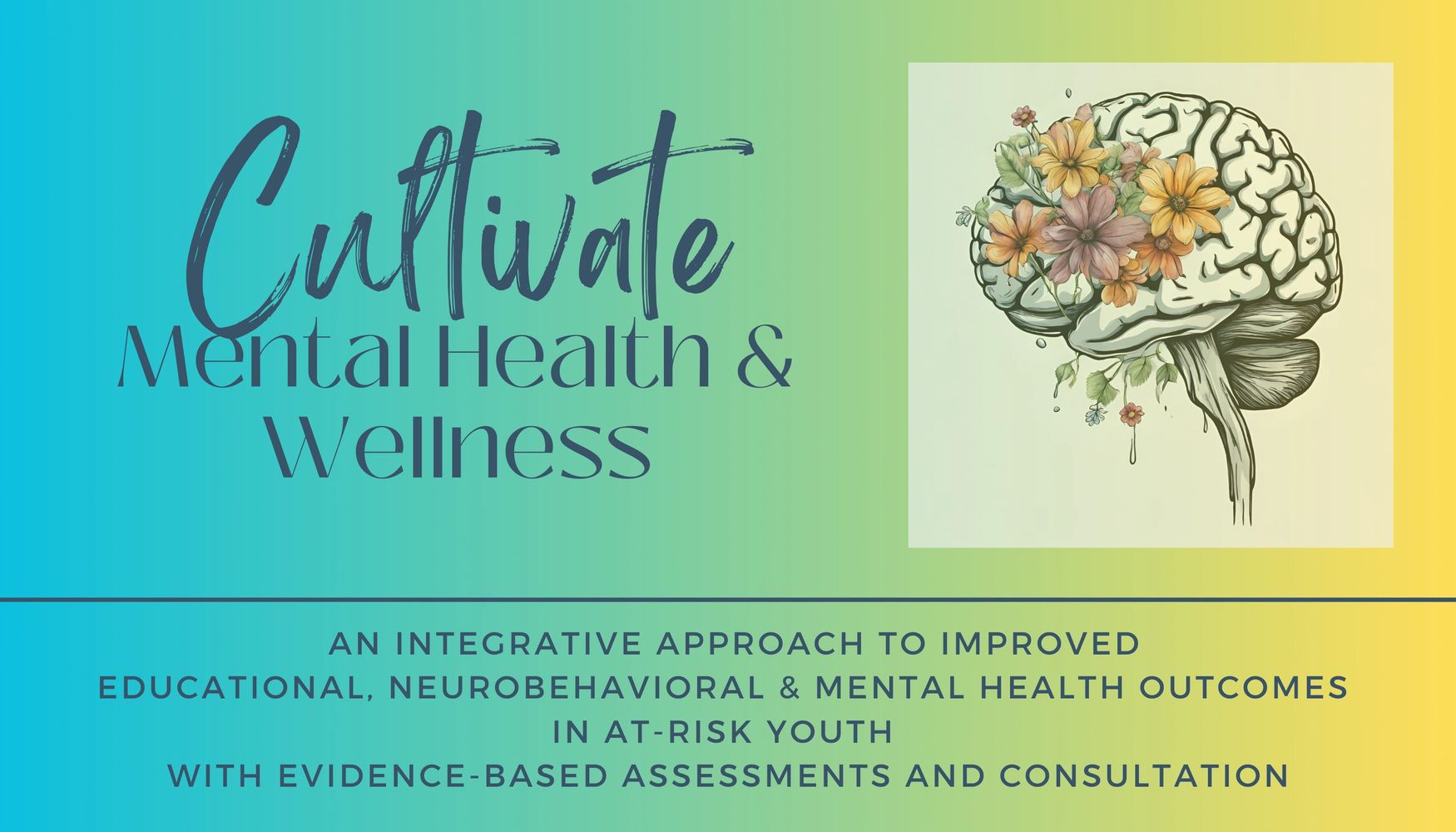How To Cultivate Mental Health Acceptance In Your Community

Table of Contents
Raising Awareness and Education
Increasing mental health awareness is the cornerstone of fostering acceptance. This involves educating yourself and others about mental health conditions, symptoms, and available resources.
Educate Yourself and Others
Understanding mental health conditions is paramount. This means:
- Learning the facts: Familiarize yourself with common mental health conditions like anxiety, depression, bipolar disorder, and PTSD. Understand their symptoms, triggers, and potential treatments. Reputable resources like the National Institute of Mental Health (NIMH) and the World Health Organization (WHO) offer valuable information.
- Recognizing signs and symptoms: Learn how to identify warning signs in yourself and others. Early intervention can significantly improve outcomes. Pay attention to changes in behavior, mood, sleep patterns, and appetite.
- Utilizing reputable resources: Leverage resources from organizations like the National Alliance on Mental Illness (NAMI), the Mental Health America (MHA), and the Substance Abuse and Mental Health Services Administration (SAMHSA). These organizations provide evidence-based information, support groups, and helplines.
- Sharing accurate information: Combat misinformation by actively sharing accurate information and dispelling common myths and misconceptions surrounding mental illness. This helps reduce stigma and promotes understanding.
Organize Community Events and Workshops
Active community engagement is vital for raising awareness and providing support. Consider these initiatives:
- Host educational workshops: Organize workshops on stress management techniques, mindfulness practices, and effective coping mechanisms for various mental health challenges.
- Screen mental health documentaries: Host screenings of documentaries or films dealing with mental health issues, followed by open discussions facilitated by mental health professionals.
- Invite guest speakers: Invite mental health professionals, individuals with lived experience, and community leaders to speak at local gatherings, schools, and community centers.
- Partner with local organizations: Collaborate with schools, libraries, community centers, and businesses to reach a broader audience and maximize the impact of your mental health initiatives.
Creating Supportive Systems and Resources
Building a supportive infrastructure is crucial for ensuring individuals have access to the care and support they need.
Advocate for Accessible Mental Health Services
Access to mental healthcare should be a priority. This means:
- Supporting local initiatives: Advocate for and support local initiatives aimed at expanding access to affordable and quality mental healthcare services.
- Advocating for policy changes: Support policies that improve insurance coverage for mental health treatment and reduce the financial barriers to accessing care.
- Promoting telehealth services: Promote the use of telehealth services to overcome geographical limitations and increase access to mental health professionals, especially in underserved areas.
Build a Network of Support
Creating a strong support network within the community is vital. This involves:
- Encouraging peer support groups: Support the establishment and promotion of peer support groups where individuals can connect with others facing similar challenges and share experiences.
- Promoting crisis resources: Make widely known and easily accessible crisis hotlines and text lines like the Crisis Text Line and the National Suicide Prevention Lifeline.
- Developing mentorship programs: Create mentorship programs connecting individuals struggling with mental health challenges with supportive community members who can offer guidance and encouragement.
- Collaborating with businesses: Work with local businesses to create supportive and understanding work environments that prioritize employee mental wellbeing and provide resources for mental health support.
Challenging Stigma and Promoting Open Conversations
Open dialogue is key to breaking down the stigma surrounding mental health.
Start Conversations about Mental Health
Normalize discussions about mental health by:
- Sharing personal experiences: If comfortable, share your own experiences (or those of someone you know with their permission) to demonstrate that mental health challenges are common and treatable.
- Using inclusive language: Avoid stigmatizing language and use person-first language (e.g., "person with depression" instead of "depressed person").
- Practicing active listening: When someone shares their struggles, listen empathetically and without judgment. Offer support and understanding.
Promote Positive Representation in Media and Community
Challenge negative portrayals of mental illness:
- Support positive media: Support local artists and organizations that create positive and accurate representations of mental health in art, media, and community events.
- Challenge negative stereotypes: Actively challenge negative stereotypes and misconceptions perpetuated in the media, advocating for accurate and sensitive reporting on mental health issues.
- Promote diverse voices: Ensure diverse voices and perspectives are included in community conversations and media representations of mental health.
Measuring Impact and Sustaining Efforts
Continuous evaluation and long-term planning are essential for the success of your mental health initiatives.
Track Your Progress
Monitor the effectiveness of your efforts:
- Monitor initiative reach: Track the number of people reached by your awareness campaigns and the engagement levels achieved.
- Gather community feedback: Collect feedback from community members to understand the effectiveness of your programs and identify areas for improvement.
- Analyze data: Use data to inform future strategies and resource allocation, ensuring your initiatives are impactful and sustainable.
Build Long-Term Sustainability
Creating lasting change requires careful planning:
- Secure funding: Explore diverse funding options, including grants, donations, and community partnerships, to ensure the long-term sustainability of your mental health initiatives.
- Establish a dedicated team: Form a dedicated team or committee to oversee mental health initiatives within your community, ensuring consistent efforts and effective collaboration.
- Develop a comprehensive plan: Create a comprehensive action plan with clearly defined goals, timelines, and strategies for achieving your objectives related to mental health acceptance and community support.
Conclusion
Cultivating mental health acceptance within your community is an ongoing journey that demands consistent effort, collaboration, and a deep commitment to inclusivity and support. By raising awareness, building robust support systems, actively challenging stigma, and meticulously tracking your progress, you can significantly improve the lives of those struggling with mental health challenges. Remember, every action—no matter how small—contributes to building a community where mental wellbeing is valued and prioritized. Let's continue working together to cultivate greater mental health acceptance in our communities!

Featured Posts
-
 Channel Swim Graeme Sounesss Bold Commitment To Islas Cause
May 03, 2025
Channel Swim Graeme Sounesss Bold Commitment To Islas Cause
May 03, 2025 -
 A Fresh Start For Reform The Argument For Rupert Lowes Leadership
May 03, 2025
A Fresh Start For Reform The Argument For Rupert Lowes Leadership
May 03, 2025 -
 Nouvelle Aide Financiere Pour Maurice Les Details De L Accord Signe
May 03, 2025
Nouvelle Aide Financiere Pour Maurice Les Details De L Accord Signe
May 03, 2025 -
 Christmas Voucher Glitch On Play Station Sony Issues Free Credit
May 03, 2025
Christmas Voucher Glitch On Play Station Sony Issues Free Credit
May 03, 2025 -
 Lotto 6aus49 Ergebnis Mittwoch 9 4 2025 Zahlen Und Gewinnklassen
May 03, 2025
Lotto 6aus49 Ergebnis Mittwoch 9 4 2025 Zahlen Und Gewinnklassen
May 03, 2025
Latest Posts
-
 Finding Your Dream Home A Practical Guide To A Place In The Sun
May 03, 2025
Finding Your Dream Home A Practical Guide To A Place In The Sun
May 03, 2025 -
 Joseph Et La Creme De La Crim Tf 1 Revue Complete De La Serie
May 03, 2025
Joseph Et La Creme De La Crim Tf 1 Revue Complete De La Serie
May 03, 2025 -
 La Creme De La Crim Joseph Tf 1 Une Exploration De L Intrigue
May 03, 2025
La Creme De La Crim Joseph Tf 1 Une Exploration De L Intrigue
May 03, 2025 -
 Mariage Macron Des Revelations Intimes Apres Des Annees
May 03, 2025
Mariage Macron Des Revelations Intimes Apres Des Annees
May 03, 2025 -
 Is Nigel Farages Reform Uk Party Facing Extinction Five Reasons Why
May 03, 2025
Is Nigel Farages Reform Uk Party Facing Extinction Five Reasons Why
May 03, 2025
